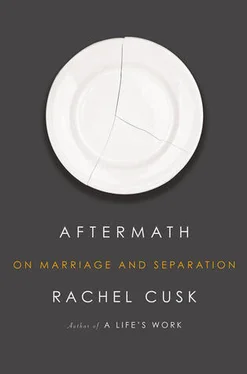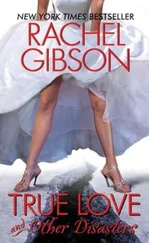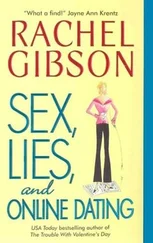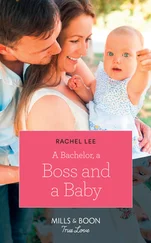Rachel Cusk - Aftermath - On Marriage and Separation
Здесь есть возможность читать онлайн «Rachel Cusk - Aftermath - On Marriage and Separation» весь текст электронной книги совершенно бесплатно (целиком полную версию без сокращений). В некоторых случаях можно слушать аудио, скачать через торрент в формате fb2 и присутствует краткое содержание. Год выпуска: 2012, Издательство: Farrar, Straus and Giroux, Жанр: Публицистика, Биографии и Мемуары, на английском языке. Описание произведения, (предисловие) а так же отзывы посетителей доступны на портале библиотеки ЛибКат.
- Название:Aftermath: On Marriage and Separation
- Автор:
- Издательство:Farrar, Straus and Giroux
- Жанр:
- Год:2012
- ISBN:нет данных
- Рейтинг книги:3 / 5. Голосов: 1
-
Избранное:Добавить в избранное
- Отзывы:
-
Ваша оценка:
- 60
- 1
- 2
- 3
- 4
- 5
Aftermath: On Marriage and Separation: краткое содержание, описание и аннотация
Предлагаем к чтению аннотацию, описание, краткое содержание или предисловие (зависит от того, что написал сам автор книги «Aftermath: On Marriage and Separation»). Если вы не нашли необходимую информацию о книге — напишите в комментариях, мы постараемся отыскать её.
Aftermath: On Marriage and Separation — читать онлайн бесплатно полную книгу (весь текст) целиком
Ниже представлен текст книги, разбитый по страницам. Система сохранения места последней прочитанной страницы, позволяет с удобством читать онлайн бесплатно книгу «Aftermath: On Marriage and Separation», без необходимости каждый раз заново искать на чём Вы остановились. Поставьте закладку, и сможете в любой момент перейти на страницу, на которой закончили чтение.
Интервал:
Закладка:
Why does she hate him so, this heroic husband of hers? Would she hate Aegysthus too if he were her bonded mate, father of her children, captain and gatekeeper of her life’s enterprise? Do all women have a special capacity to hate their husbands, all husbands the capacity to hate their wives with a hatred that is somewhere fused with the very origins of life? The first time I saw my husband after our separation I realised, to my surprise, that he hated me. I had never seen him hate anyone: it was as though he was filled up with something that was not of himself, contaminated by it, like a coastline painted black by an oil spill. For months black poisonous hatred has flowed from the fatal wound to our marriage, flowed through every source and outlet, soaked into everything, coated the children like the downy heads of coastal birds are coated in tar. I remember how towards the end it felt like a dam giving way by degrees, the loss of courtesy and caution, the breakdown of civility and self-control: these defences seemed to define the formal core of marriage, of relationship, to articulate the separation of one person from another. Without them we would lose our form. Form is both safety and imprisonment, both protector and dissembler: form, in the end, conceals truth, just as the body conceals the cancer that will destroy it. Form is rigid, inviolable, devastatingly correct; that is its vulnerability. Form can be broken. It will tolerate variation but not transgression; it can be broken, but at what cost? If it is destroyed what can be put in its place? The only alternative to form is chaos.
An outcast from marriage, I look at other marriages with a different eye. Silently I congratulate the couples I pass in the street, while at the same time wondering why they are together and I am alone. I know that they have succeeded where I have failed, yet I can’t seem to remember why this is so. Later in the Oresteia , when Clytemnestra has herself been murdered, the Furies tasked with representing her female outrage and keeping her righteous anger alive in the world keep falling asleep. They become drowsy, lazy, forgetful: they fail to remember and articulate the injustice she has suffered in her attempt to be free, to pursue the murderer and be his conscience, to keep cleaning the black tar of hate from her image. And I, too, cannot remember what drove me to destroy the life I had. All I know is that it is lost, gone. The blackness of hate flows and flows over me, unimpeded. I let it come. I cannot remember.
But Agamemnon killed Clytemnestra’s daughter, her first child. Men are said to resent the child that first takes the woman’s love and attention away. And it is true that a woman can find relief in loving something that is not her opposite. Her baby doesn’t judge her, doesn’t desire her: for a while it seems to reconnect her with her own childlikeness, her girlishness, her innocence, but in reality her links to that state have been irrevocably severed by motherhood. The baby can seem like something her husband has given her as a substitute for himself, a kind of transitional object, like a doll, for her to hold so that he can return to the world. And he does, he leaves her, returning to work, setting sail for Troy. He is free, for in the baby the romance of man and woman has been concluded: each can now do without the other. Out of their love they created an object, the baby, and in doing so they defined it, defined their love and its limitations.
Their romance has been concluded and now, perhaps, they are murderously angry with one another. Perhaps she thought the baby would make him love her more, but in fact she seems to have lost him: he has used it, the baby, to make his escape from her. She doesn’t want a doll after all — she wants a man, a man to love her and desire her. Iphegenia, led out in her saffron-coloured wedding dress, is perhaps the sacrifice that lies at the heart of all marriages, the death on which the whole enterprise is built.
Everywhere I see couples, but when I get close enough to hear them the impression changes. Image becomes reality: I am briefly entangled in the net of marital conversation as it passes, am momentarily webbed in its tensions and politics, its million-threaded illusion of harmony. When couples talk, everything they say means something else. Their talk is referential, but the reality it refers to is hidden from view. You see the shadow, but not the object that casts it.
Most evenings now Rupert and I meet in the kitchen. He is always in: I go downstairs and there he is. It is the opposite of marriage, this endlessly recurring randomness through which we find ourselves thrown together. While his supper revolves we talk. He asks me about my situation. He’s interested in the house and in the nature of its energy supply. One evening he opens a bottle of wine and offers me a glass. He offers me a share of his meal, pasta with a red sauce that comes from a Heinz jar. He says he thinks he can arrange a cheaper deal for me, if I give him all the paperwork. He loosens his tie. Outside the kitchen windows is a dry, violet-coloured darkness, and from the neighbouring gardens comes the sound of people talking and laughing in the warm evening. In my garden cats prowl through the overgrown grass and recently I saw a huge fox, mangy and ruddy, standing on the back wall on its four cankered legs in the dusk. Upstairs the children lie asleep in their beds: I imagine them there, like people sleeping in the cabin of a ship that has sailed off its course, unconscious of the danger they’re in. We have lost our bearings, lost our history, and I am the ship’s captain, standing full of dread at the helm. Rupert sloshes more wine into our glasses. He tells me I’m doing a great job. He tells me he thinks I’m a very nice person. He tells me we’re in the same boat, in a way. After a while I say goodnight, and go and shut myself in my room.
I book our summer holiday, the same holiday we always take, to a much-loved familiar place. I tell my husband that we can split the holiday in half, changing over like runners in a relay race, passing the baton of the children. He refuses. He says he will never go to that place again. He wants only what is unknown to him, what is unfamiliar. He thinks there is something ruthless and strange in my intention to revisit a place where once we were together, and the truth is I don’t yet realise the pain this intention will cost me, the discipline I will have to inculcate to endure it. Great if it doesn’t bother you, he says. I say, you want to deny our shared history. You want to pretend our family never happened. That’s about right, he says. I say, I don’t see why the children should lose everything that made them happy. Great, he says. Good for you.
Rupert is gone in the mornings by the time I get the children up for school, and in the evenings I avoid him. I stay in my room, fencing with the long nights. I can no longer sleep: I’m too frightened of dreaming, and of waking from the dreams. I’m frightened of my house. I’m frightened of my own bed. I feel as though I have walked out into a world that looked through the windows to be balmy and warm, only to discover that the sun was the frozen sun of winter, the dazzling light that of polar regions and glaciers. It is colder out here than I could ever have imagined.
One night I hear the front door violently slam: Rupert has gone out. He does not return until the next morning. He does not go to work. All day I am aware of him in his room. At nightfall he emerges in his white robe, ill-looking and sheepish. He says he called in sick; he overdid it a bit last night, at the pubs and clubs in the town centre. Did he go out with friends? Well, no, not exactly, though he seems to remember meeting a few people in the course of things. But no, he went out drinking alone. He came back at about three and slept the rest of the night in his car. He’s been sleeping most of the day, but he’s a bit the worse for wear. He looks at me dartingly, his eyes yellow with drink.
Читать дальшеИнтервал:
Закладка:
Похожие книги на «Aftermath: On Marriage and Separation»
Представляем Вашему вниманию похожие книги на «Aftermath: On Marriage and Separation» списком для выбора. Мы отобрали схожую по названию и смыслу литературу в надежде предоставить читателям больше вариантов отыскать новые, интересные, ещё непрочитанные произведения.
Обсуждение, отзывы о книге «Aftermath: On Marriage and Separation» и просто собственные мнения читателей. Оставьте ваши комментарии, напишите, что Вы думаете о произведении, его смысле или главных героях. Укажите что конкретно понравилось, а что нет, и почему Вы так считаете.












